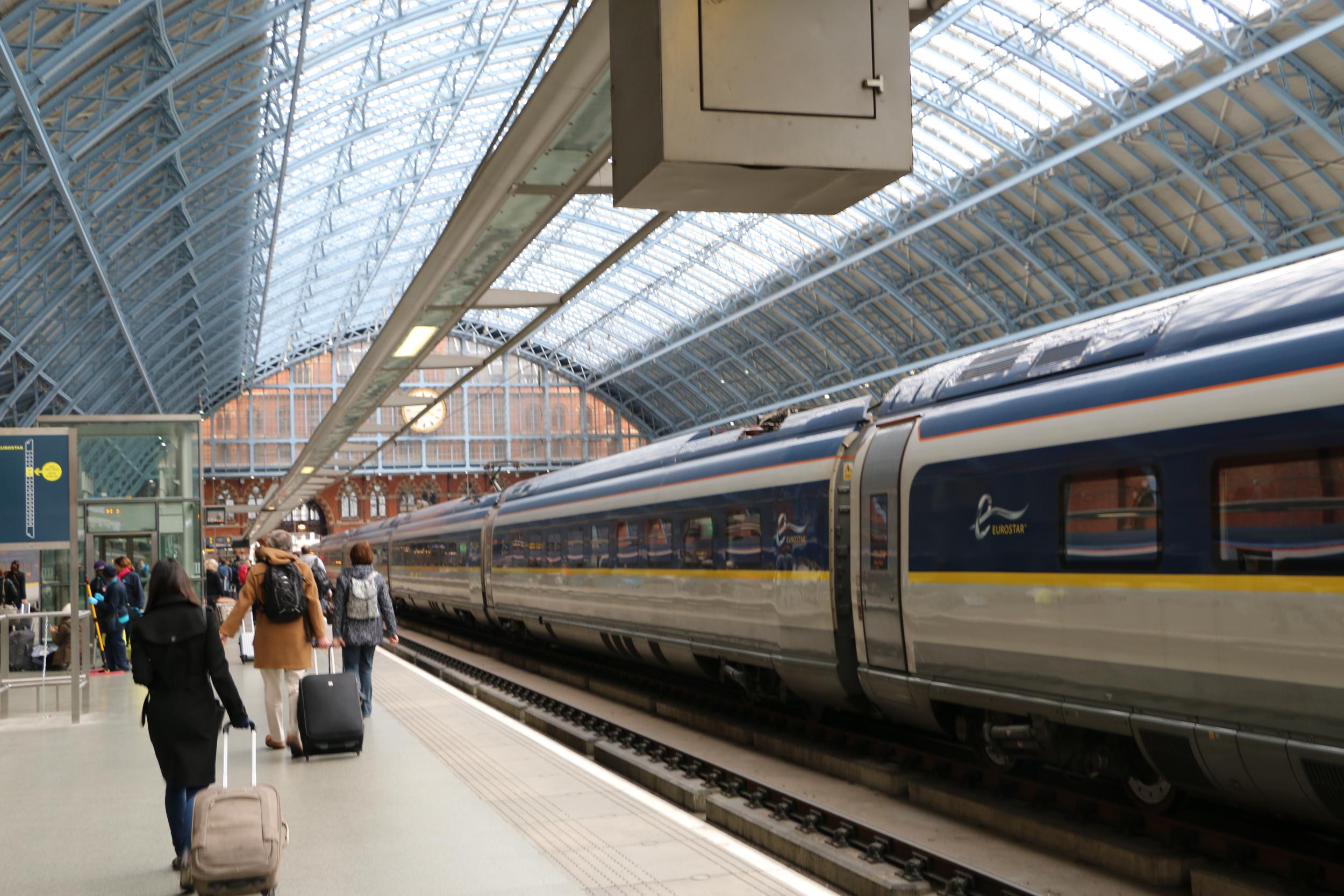Travel after Brexit: All you need to know about Eurostar, Eurotunnel and ferries
‘New customs obligations would be very difficult to put in place in the restricted space available in stations,’ says Eurostar

The UK is set to leave the European Union on 29 March 2019.
Brexit has profound implications for travellers. This is the latest on what we know, what we think we know and what we still don’t know.
Next up: trains and ferries.
What will it mean for passenger rail on Eurostar?
Eurostar, which operates high-speed trains from London St Pancras through the Channel Tunnel to Amsterdam, Brussels, Paris and beyond, has been thriving of late. In the summer of 2018, passenger numbers were up by 12 per cent year-on-year, and sales revenues grew by one sixth. The new Amsterdam route is proving particularly successful, and a third daily train will begin in June.
But the train operator set out serious concerns about Brexit shortly after the EU referendum, saying bluntly: “There are no benefits or growth opportunity that we could identify from leaving the EU.
“Our fixed costs are already very high, and in many instances the business case is marginal.
“Any additional cost, small as it might seem, would only add to these costs and risks either raising prices for passengers or, if the market cannot bear such increases, making the operation unsustainable in its present form.”
In a submission to the House of Lords, Eurostar expressed practical concerns about the government’s insistence on leaving the customs union: “New customs obligations would be very difficult to put in place in the restricted space available in stations.”
Were the current “juxtaposed” passport controls (by which French officials check passports in the UK, and vice-versa) to end as a result of Brexit, overall journey times could increase by 40 minutes.
The train operator also warned that a reduction in the number of EU nationals it employs would have an adverse effect: “We are known for our European feel, reflecting the markets and customers we serve, and even if such skills could be reliably sourced in the UK, the cultural diversity that supports the success of our operations could not.“
But the trains will keep running?
Yes. Eurostar now says: “We plan and expect to maintain services on the existing basis and timetable following Brexit.
“Eurostar has been working extensively with our station partners, governments and control authorities on both sides of the Channel to ensure that robust plans are in place to protect services and to manage customer flows effectivity.”
What about car-carrying operations on Eurotunnel?
Eurotunnel vehicle-carrying shuttles through the Channel Tunnel between Folkestone and Calais are governed by the 1986 Treaty of Canterbury rather than EU laws. “Whatever the outcome, Eurotunnel le Shuttle will be here to offer you the fastest and easiest way to cross the Channel,” the firm says.
Services around the clock and around the year will continue, subject to any local disruption at either end of the link. Eurotunnel adds: “In the unfortunate event of a build-up of traffic on the motorway which results in customers arriving late, we will as always endeavour to accommodate them on the next available shuttle* (though it adds *”a payment of difference in fare may apply”).
Will ferries be affected?
They already are: Brittany Ferries, which (alongside DFDS) has been contracted by the Department for Transport to lay on extra services on the western Channel in the event of a no-deal Brexit, and as a result some customers have had their bookings changed.
But for the wider picture, the trade body Discover Ferries says: “Passengers travelling via ferry to Europe should be able to continue to sail on their booked ferry services, as well as book new crossings to Europe for travel up to, during and beyond 29 March 2019, with confidence.

“This will remain the case regardless of a deal or no deal Brexit scenario.”
Ferries to and from Ireland will not be affected.
Contingency planning is taking place for traffic congestion in Kent. In the event of a no-deal Brexit, the government says disruption to normal operations is “likely to be felt mostly on the short straits crossings into Dover and Folkestone”.
Read more about travel after Brexit, and what it means for visas and passports, here.
Join our commenting forum
Join thought-provoking conversations, follow other Independent readers and see their replies
Comments
Bookmark popover
Removed from bookmarks